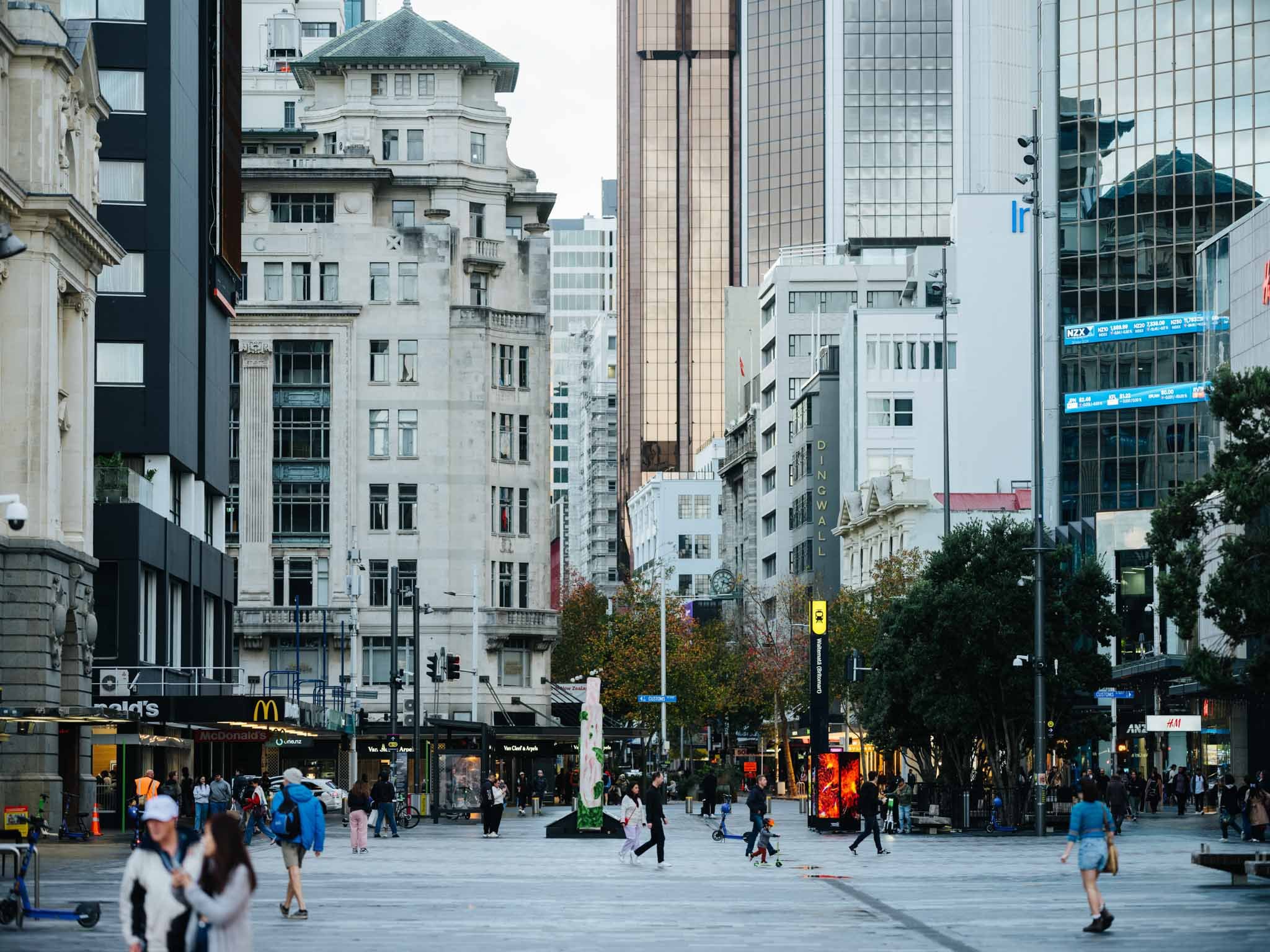Fifteen years after Auckland’s transformation into a “supercity,” a new survey by Deloitte New Zealand, along with research from the University of Auckland, suggests the city is underperforming compared to its international peers. Despite the consolidation of local councils into one unified governance model in 2010, many Aucklanders believe the city is not delivering on its potential and risks falling further behind on the global stage.
The findings were released as Auckland marked the 15-year milestone of the supercity’s creation, with a gathering of key leaders including Auckland Minister Simeon Brown, Mayor Wayne Brown, and former Prime Ministers John Key and Helen Clark.
According to the report, Auckland continues to face significant challenges in infrastructure, transport, and economic competitiveness. The report, which compares Auckland with similarly sized global cities, paints a picture of a city with strong foundational elements but faltering progress.
Deloitte NZ CEO Mike Horne said that while the supercity model has laid down critical infrastructure building blocks, Auckland has not capitalised on them to achieve its full potential.
“It’s set some of those key building blocks, but it’s not seeing Auckland deliver its potential, and it’s not seeing Auckland compete on the global stage to the degree that it really needs to,” Horne said.
A major concern for residents is the lack of a cohesive public transport strategy. The Deloitte survey found that 76% of Aucklanders believe the city lacks an integrated and effective public transport plan. Many respondents voiced support for a comprehensive, long-term infrastructure roadmap to address this gap.
Another striking finding from the survey is that 77% of respondents believe Auckland must reposition itself as a global innovation city to attract talent and boost economic growth. However, there is widespread concern that the city is not fully leveraging its innovation potential or investing sufficiently in future-focused industries and workforce development.
Horne acknowledged that the supercity structure has allowed for unified decisions around large-scale infrastructure, pointing to major projects such as the City Rail Link and the Waterview Tunnel, which may not have been possible under the previous fragmented council system. However, he emphasised the urgent need for continued and expanded investment in transport and housing infrastructure.
The survey also revealed that 61% of Aucklanders support reducing traffic congestion as the city’s top transport priority, even if it involves introducing congestion charges during peak hours. More than half of respondents called for greater investment in pedestrian and cycling infrastructure to improve mobility and liveability across the city.
Debate also persists over urban development. While there is growing support for higher housing density along key transport corridors, opinions remain divided over how to balance intensification with the preservation of green spaces and the role of private car use in future planning.
Committee for Auckland Director Mark Thomas stressed that unless the city takes bold action and embraces smarter investments, it risks slipping further behind more agile and competitive global cities.
“Auckland must reset its direction with a new agenda focused on bolder action, stronger global competitiveness, and more effective investment,” Thomas said. “Without much clearer commitment from both central and local government and their partners, Auckland’s standard of living and growth prospects will continue to suffer.”
Auckland University of Technology Vice-Chancellor Damon Salesa echoed these concerns, adding that Auckland’s future success depends heavily on how well it serves its increasingly diverse population, including the largest numbers of international students, Māori, Pacific, and young people in the country.
“Our city’s youth have enormous potential and deserve access to quality education, infrastructure, and employment opportunities,” said Salesa. “AUT is focused on building partnerships that help unlock this potential and ensure our city’s people can thrive.”
Helen Clark reiterated her support for the supercity model, noting that it was introduced to overcome inefficiencies caused by fragmented local governance. She maintains that, despite its shortcomings, unification was the right step to give Auckland the leadership and coordination it needs. -TIN Bureau



